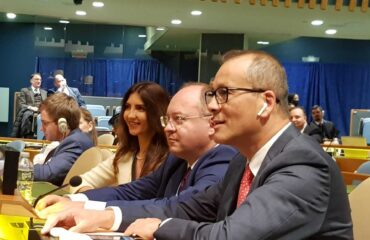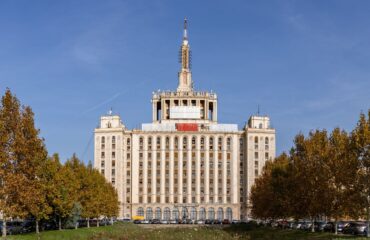
Even a minor mistake can have significant consequences when representing a country on the world stage. Recently, Romanian President Klaus Iohannis made headlines for an unfortunate slip at a European summit. He misstated the capital of a neighbouring nation. This simple error quickly drew criticism, and some worry it may strain Romania’s already delicate relationship with Hungary. Such moments offer valuable lessons in diplomacy and leadership, especially in regions with complex histories like Central and Eastern Europe.
Why Details Matter in Diplomacy
Diplomacy is all about respect, attention to detail, and understanding the subtle nuances that define each culture and country. When a leader misnames a neighbouring country’s capital, it can come across as uninformed or dismissive. This perception is susceptible to Romania and Hungary, two countries with close geographical ties and shared economic interests but also a complicated past. Even a tiny error can set off ripples, impacting how citizens, politicians, and businesses view their cross-border relationships.
Setting the Tone: Why Leaders Must Lead by Example
As the public face of their nation, leaders are responsible for representing their country with accuracy and grace. When a mistake happens at this level, it’s not just about one individual—it reflects on the nation as a whole. President Iohannis’s misstep is a reminder that diplomatic conduct has real consequences. These moments set the tone for how other nations view Romania and how Romanians see themselves in the global community.
How to Avoid Diplomatic Blunders
High-profile figures can—and should—take steps to prevent these mistakes. Leaders like President Iohannis can set a better example by embracing a few key practices:
- Preparation is Essential: Knowing the facts about the countries involved in a meeting or event shows respect and builds confidence among diplomatic partners. It’s crucial to get these basics right.
- Sensitivity Training: Leaders benefit from training that gives them a grounding in the culture and norms of the countries they work with, even if it’s just a refresher before a big event.
- A Detailed Review: Speechwriters and advisors play a crucial role here. Reviewing all the small details, including country names and titles, can prevent embarrassing moments.
- Owning Mistakes: When a misstep does happen, a prompt apology goes a long way. Acknowledging the error shows humility and respect for those affected.
What This Means for Romanian-Hungarian Relations
Romania and Hungary have a long history together, and while relations have improved, they remain sensitive. Simple diplomatic missteps can stir up old wounds, potentially creating friction in a relationship that’s been carefully managed over the years. For Romania’s leaders, it’s a reminder that fostering trust and respect requires vigilance, especially with neighbours who share complex histories.
Moving Forward: Protecting Romania’s Image on the World Stage
Moments like these underscore the importance of preparation, respect, and a clear commitment to getting the details right. Romania has an opportunity to reaffirm its dedication to thoughtful and respectful diplomacy, ensuring that future interactions reflect a strong, well-prepared, and globally mindful nation.




